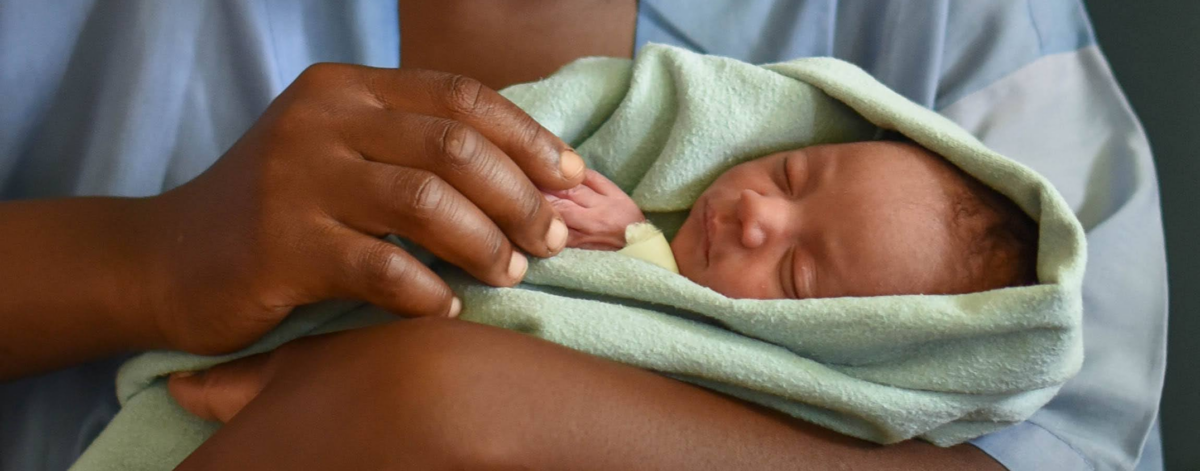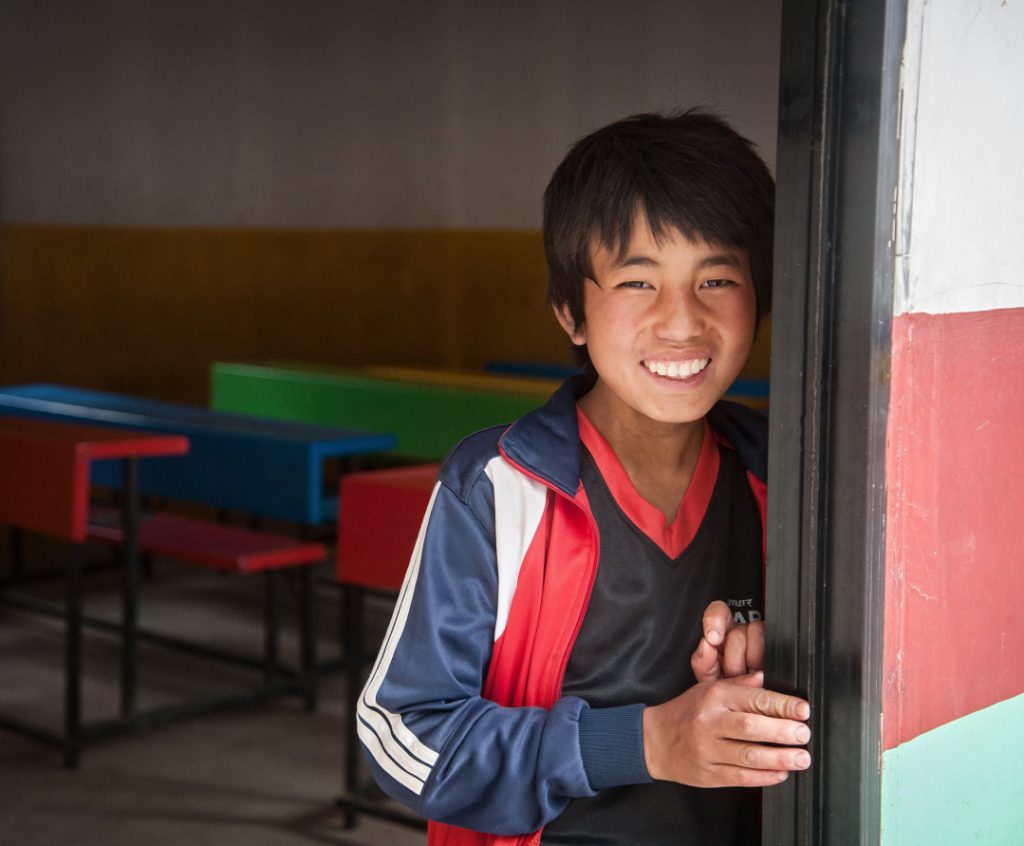An estimated 13.4 million babies were born preterm in 2020. In low-income settings, half of babies born very premature (at or below 32 weeks) lose their lives due to a lack of accessible, cost-effective care. In high-income countries, almost all these babies survive.
At Adara, we’re privileged to work with newborns, including those born too soon. We’re also fortunate to work with the dedicated staff providing life-saving care to these babies. For us, World Prematurity Day is a time to shine a light on the simple, proven measures that can help more small and sick newborns survive and thrive.
That’s why we’re taking this chance to spotlight our AdaraNewborn model that we believe is a game-changer for newborn health in low-resource settings. We’re also elevating the voices of the skilled health workers who make this work possible.
About AdaraNewborn
AdaraNewborn is our evidence-based, high-impact model with the power to halve newborn deaths and stillbirths across 10 health facilities in Uganda over the next decade. Our track record is strong – our model has increased survival rates for the sickest and smallest newborns to the levels in some high-income countries. We have sustained this work for 25 years.
AdaraNewborn works to address the quality and availability of services across the continuum of newborn care, supporting mother and baby throughout pregnancy, delivery, inpatient newborn care, postnatal care and then follow-up and early-intervention in the community. Through this model, we aim to save over 7,000 lives across Uganda. We have already begun expanding this work and we currently operate AdaraNewborn in three sites in the country.
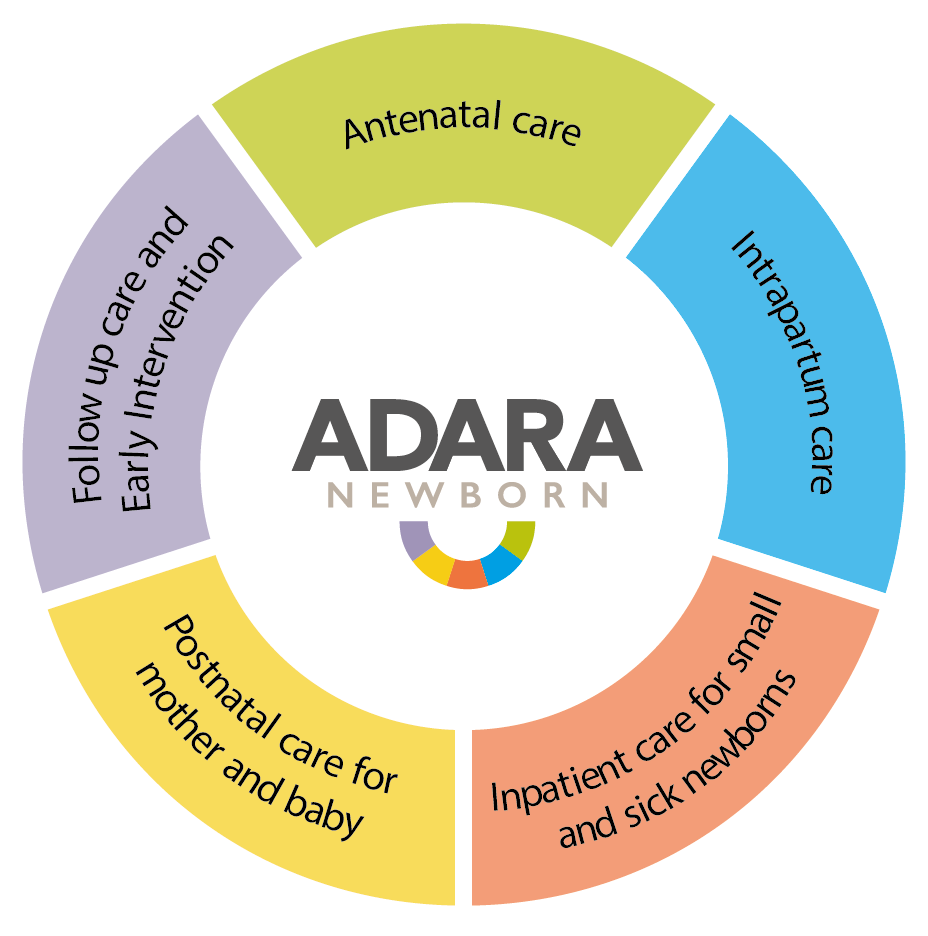
AdaraNewborn’s first site: Kiwoko Hospital
Kiwoko Hospital is at the heart of this work as our first AdaraNewborn site. After working hand in hand with Kiwoko for 25 years to pioneer a holistic model of care, we’re now leveraging our experience to accelerate change across Uganda.
Josephine Nakakande is the Nurse in Charge of the Kiwoko Hospital neonatal intensive care unit (NICU). She has been working at Kiwoko since 2003 and has seen immense change in her time there.
“When I first started working in the NICU, newborn care at Kiwoko wasn’t all that good. We were lacking in newborn care knowledge,” she says. “The NICU started with few staff and just two rooms.”
After years of continuous improvement, including investment in staff, infrastructure, training and mentorship, equipment and biomedical engineering, Kiwoko is now a leading hospital in Uganda.
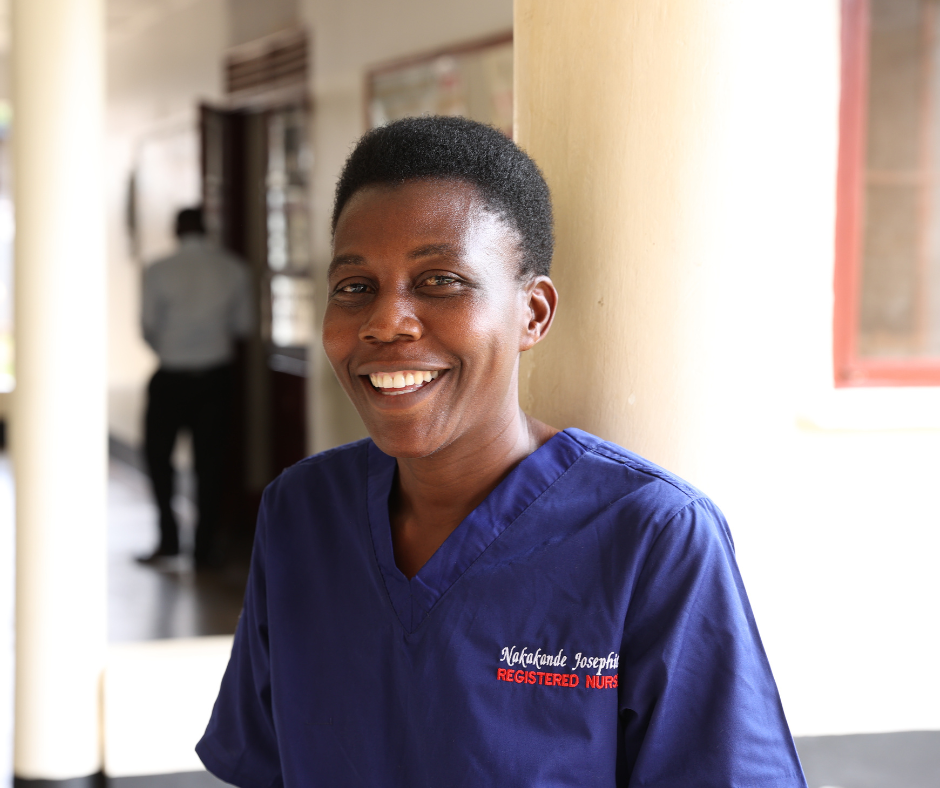
“When you look at the care here, it has improved so much. This is through the different care approach and the knowledge we gained into newborn care,” Josephine says. “Adara provided us with training, infrastructure, equipment and more. Now this unit is a Centre of Excellence in newborn care.”
As we scale our AdaraNewborn model across Uganda, we are committed to maintaining Kiwoko as a Centre of Excellence by supporting the hospital’s programmes across the continuum of care. It will sit at the heart of our first regional hub as a referral facility that can provide higher levels of care while also modelling what is possible in newborn health.
“We always talk about improving our care, not letting it go down. We think that we should always be above the curve. We want to continue improving the quality care that we provide. That is the hope we have.”
Josephine Nakakande
AdaraNewborn’s second site: Nakaseke Hospital
In 2017, we began working with the second AdaraNewborn site, Nakaseke Hospital to establish newborn care as it was much needed. Together, we initiated a newborn training programme and opened the hospital’s first special care baby unit (SCBU) that we later expanded in 2021. In establishing the SCBU, we drew on our deep experience working in newborn care with Kiwoko Hospital.
Teddy Asaba is the Nurse in Charge of the SCBU at Nakaseke Hospital. She says she has witnessed immense growth in Nakaseke’s SCBU since the hospital’s partnership with Adara began.
“Our SCBU started in a small room that could only hold three babies. There were only three nurses who were trained and we found that we were getting too many babies,” she says. “Adara made us a bigger space where now it is accommodating more babies and we have more nurses working in the SCBU.”
The expansion of AdaraNewborn to Nakaseke has shown remarkable results. Since the partnership began, Nakaseke has maintained average survival rates of 99% in the SCBU.
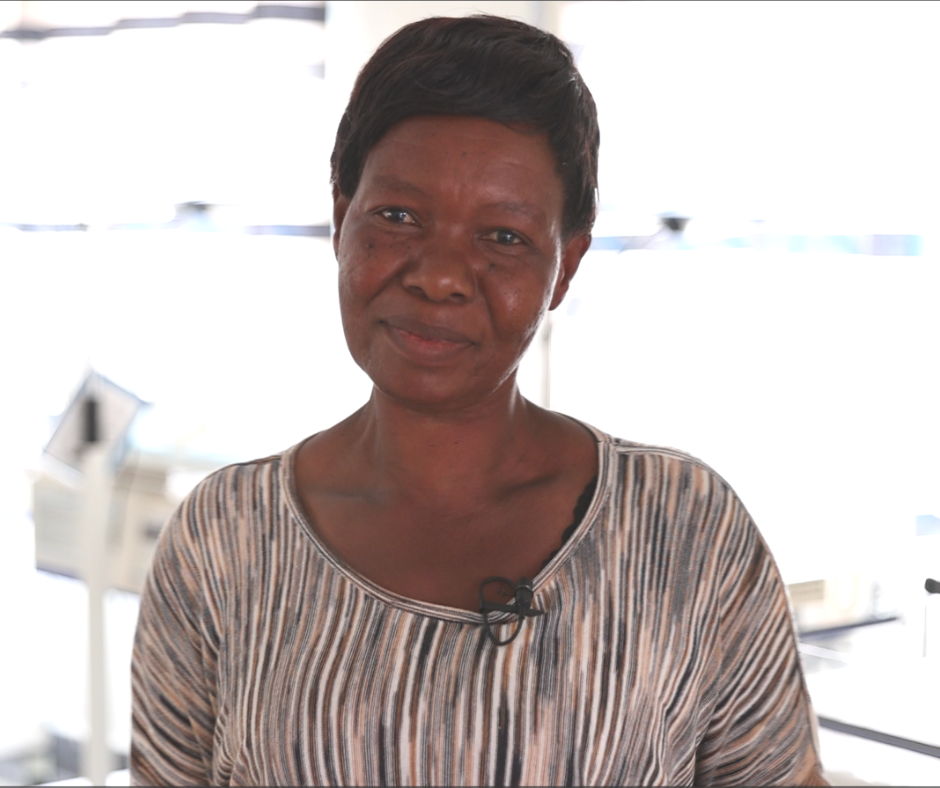
Teddy says it’s these results that make all the hard work worth it and pushes them to keep going.
“The successes encourage us to continue working with the small babies. We used to have to refer them all to Kiwoko, but we are so happy we now can care for many of them here,” she says.
“When I work with the babies, I feel good. I love that we can help them, that’s why I go the extra mile”
Teddy Asaba
The SCBU has come so far in just a short time, but we know there is still work to do. We will continue working with Nakaseke to save more lives by supporting mothers and babies across the continuum of care. We are doing this by expanding our training across antenatal, intrapartum and postnatal arms. We will build on this to fully implement all five arms of AdaraNewborn, including follow-up and early intervention.
AdaraNewborn’s third site: Luwero Hospital
Luwero Hospital is the third and newest AdaraNewborn site. We began work with Luwero earlier this year following our successes implementing AdaraNewborn at Kiwoko and Nakaseke hospitals.
Located in central Uganda, Luwero is a public facility that registers more than 3,500 births each year and needs to refer many of these babies to other health facilities to receive more specialist care.
The District Health Officer from Luwero requested this partnership as he sees the lives of too many women and newborns being needlessly lost.
Lydia Nakiyini is one of the nurses working in the newborn unit at Luwero Hospital. She says when staff from Luwero first visited Kiwoko Hospital, they believed Luwero was too far behind in newborn care to ever be able to catch up.
“We thought in our hearts that we can’t ever get to Kiwoko’s level,” Lydia says.
However, since Adara’s partnership with Luwero began, Lydia now has hope for the future of newborn care at the hospital.
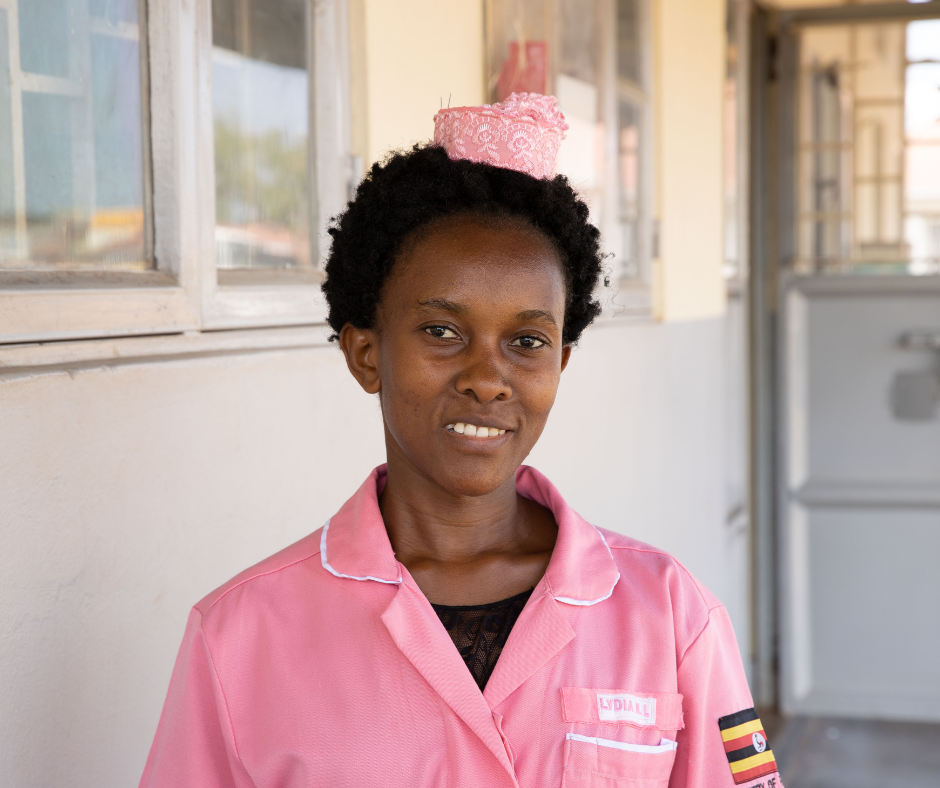
“Now Adara has come and helped and supported us at Luwero. We believe that Adara can help us to well equip our neonatal unit,” she says. “We can care for more babies here and Kiwoko won’t be overwhelmed with referrals.”
We’ve been working with Luwero to provide training for nurses, midwives and biomedical engineers. We’ve also carried out consultations, benchmarking, needs assessments and have begun necessary equipment and infrastructure upgrades.
Lydia has ambitious dreams for the future of newborn care at Luwero and believes with Adara’s support, it can be achieved.
“My dream is very big. But with Adara’s help I believe it is possible,”
Lydia Nakiyini
Our three current sites are only the beginning of AdaraNewborn. With only seven years left to achieve the Sustainable Development Goals, we know that we must rapidly scale this model.
Our dream is global – by demonstrating the impact of AdaraNewborn in Uganda, we will support other countries to adapt and adopt the model. Together we can change and save thousands of newborn lives across Uganda and beyond.
